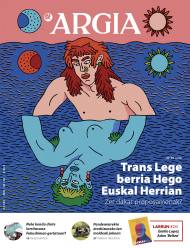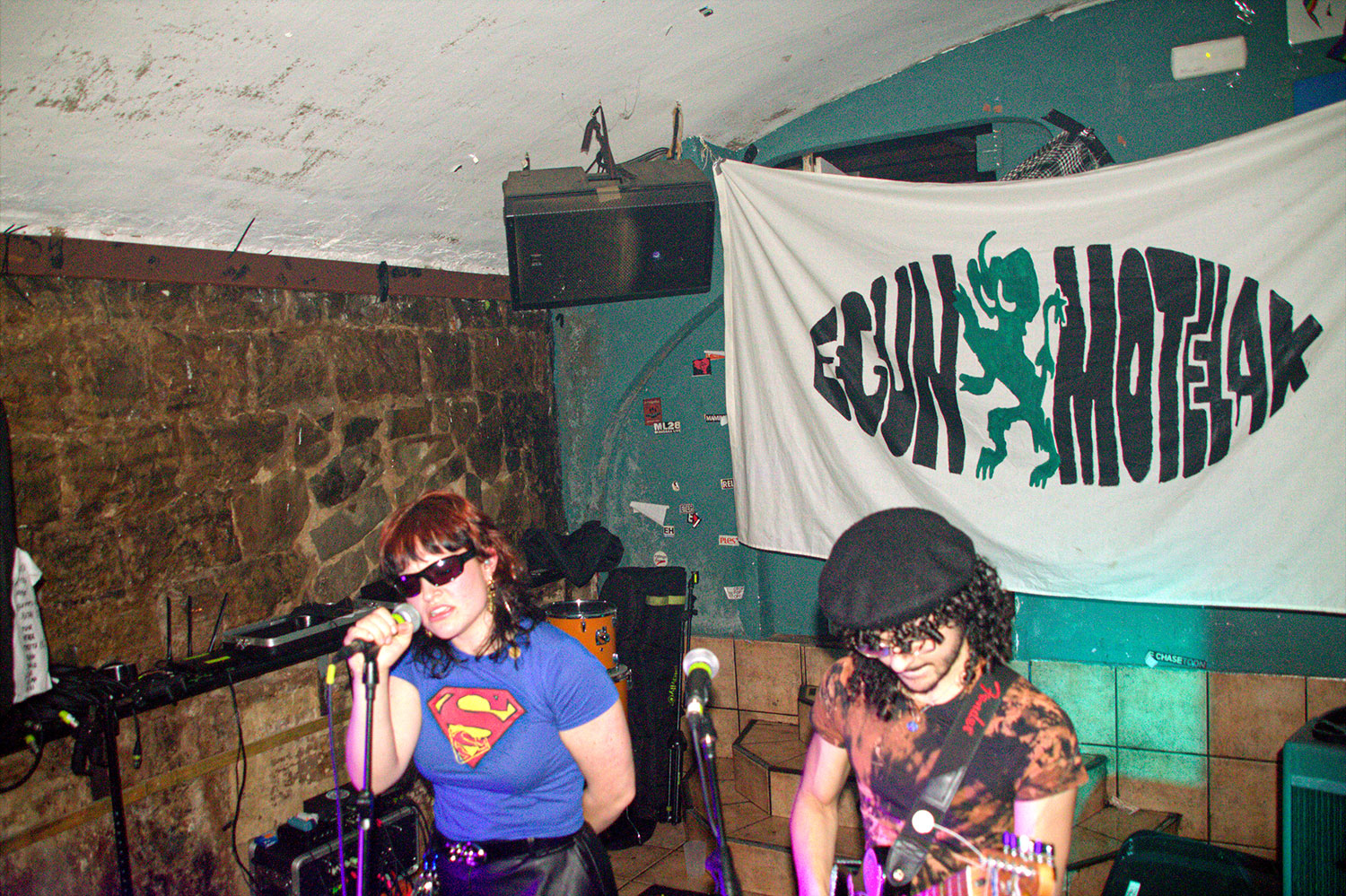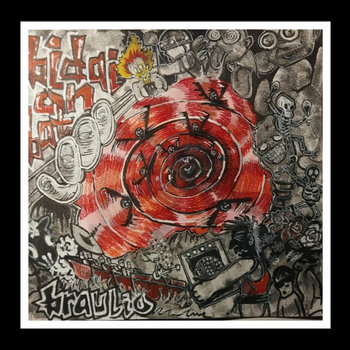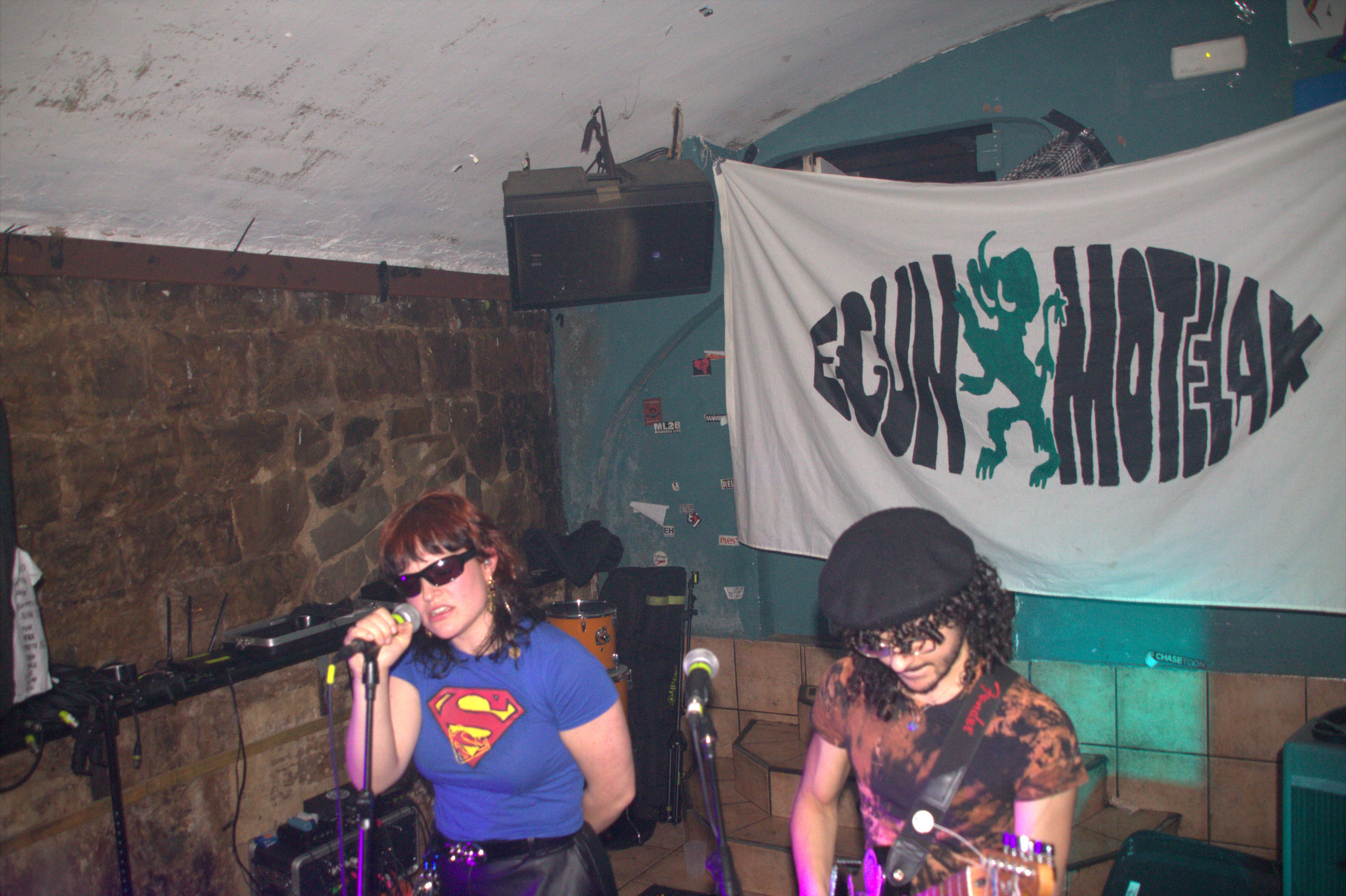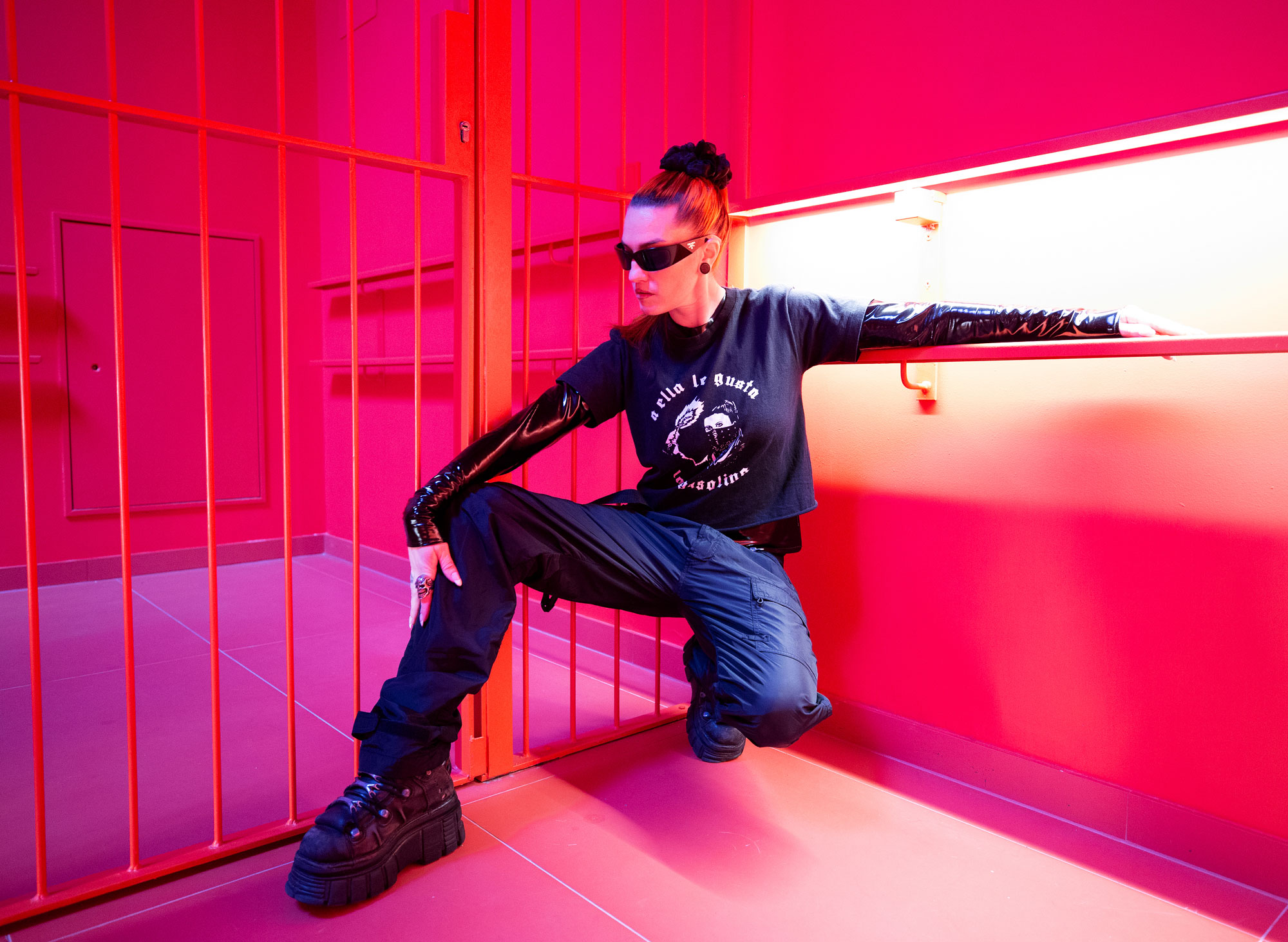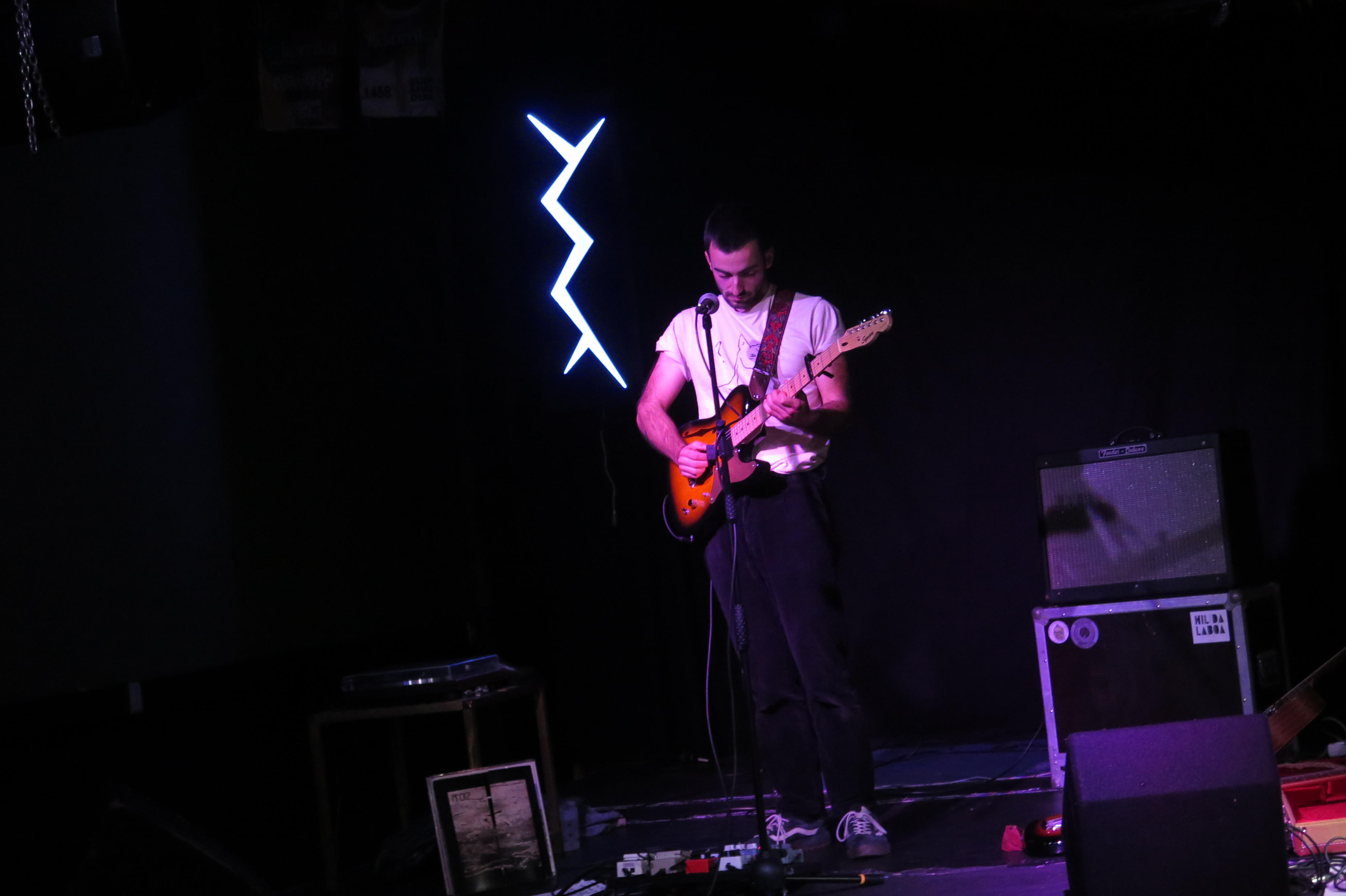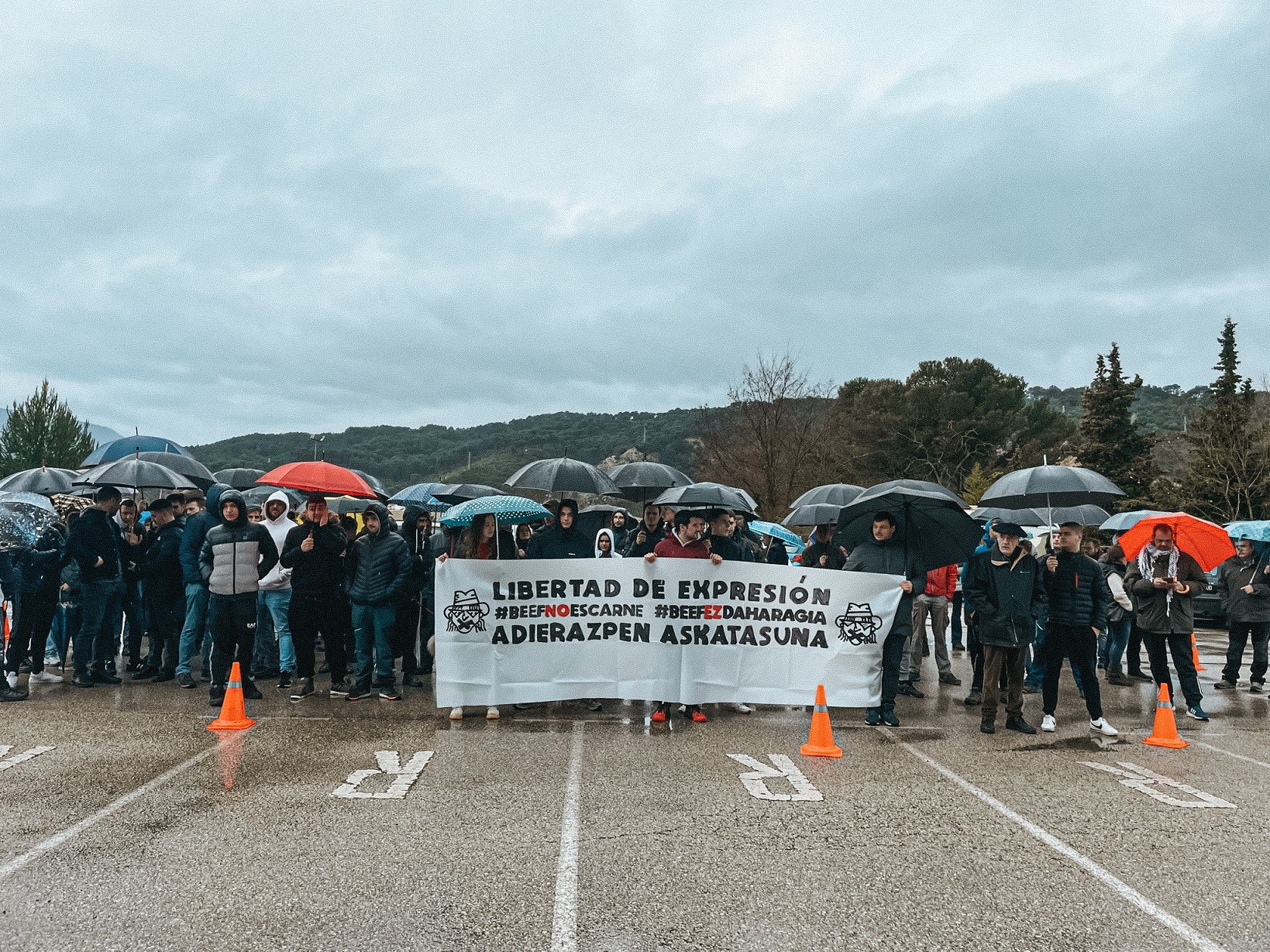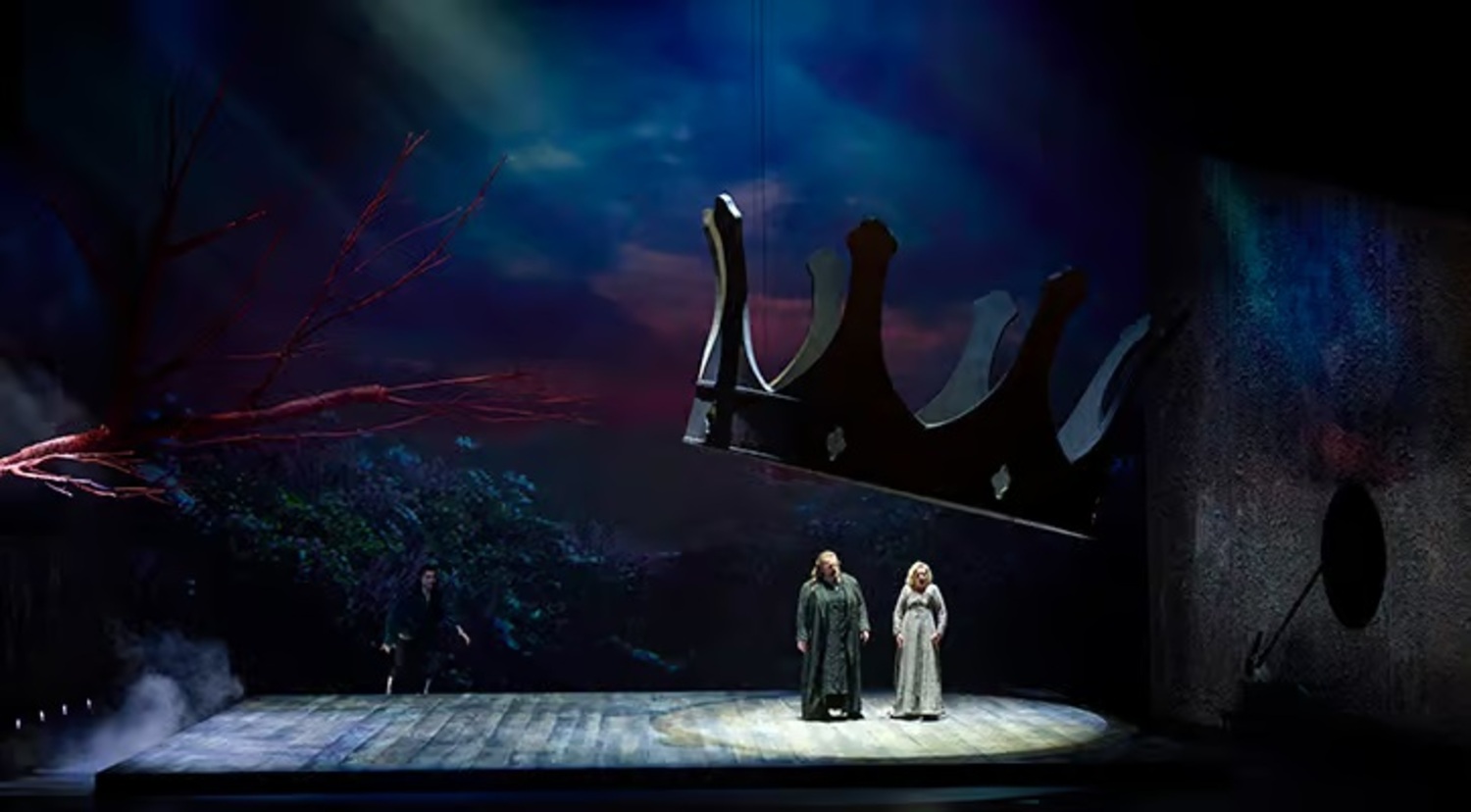Ez Dok Amairu driver
- It was one of the first names of the new song. He was very successful as a soloist and Ez Dok Amairu participated and encouraged. Last year, when the events were held in honour of Xabier Lete, the soul of Lourdes Iriondo was always present or in most cases.

Joxemari Iriondo lived the atmosphere in Basque firsthand from the Radio Popular window of Loiola. Some radios were born both in the late 1950s and the early 60s of the last century, and were dedicated to the radio of Loiola, in Azpeitia. But at that time, Iriondo wrote in 2014 "The Basque musical atmosphere in the 1960s" (Jakin, number 200): “The edition of new books, the revitalization and creation of magazines, the organization of competitions of dantzaris and txistularis, the meetings between choirs and otxotes, the great revolution of the Basque song, the creation and revitalization of ikastolas, the renewal or creation of theatre groups… Thousand initiatives, thousand initiatives”.
As for music, the coral and coral tradition was rooted, but the opponent of the old law had his ambition, according to Iriondo: “In the sea there is laño, Maritxu nora zoaz, Ara nun diran, Civilians have told me, Guitar zartxo bat... we started to get bored, or [they themselves] our radio listeners were absolutely boring. And so began the movement of the new Basque song.” Not before Dok Amairu is created.
Apparently, the new song in Basque began to flourish in Bizkaia and Bilbao in 1957-58. In the singers were, for example, the eight brothers Robles-Arangiz and, for example, in 1960, Robles-Aranguiz and Txabi Villaverde sang at the Euskaltzaleak Congress of Arboti-Zohota. The audience was attended by Mixel Labeguerie, “the first singer who was alone and accompanied by a guitar,” according to Iriondo. Labeguerie was published in 1964-1965 and Lourdes Iriondo came to light…
Appearances of Lourdes Iriondo
In early 1965 Lourdes Iriondo first sang in favor of the ikastola of Andoain and then in Tolosa and Villabona. However, the real beginning of Lourdes on 6 May 1965 would come on the first Sunday of the month, in Aizarna, on the occasion of Youth Day. His success was enormous and Joxemari Iriondo asked him the next day to record several songs on Loyola Popular Radio. “He said yes, without much thought, and so on Monday morning we recorded the four beautiful songs he had sung in Aizarna: I sing to him, Lord; Child in the cradle; Arren, Lord; Amatxo, honey.” And from the waves of Loiola to the world of the Basque peoples. “We started broadcasting these issues on radio on Tuesday morning’s show and from there we offered listeners the pearls of Lourdes three or four times a day. I remember the success and affection that Lourdes songs awakened among our listeners. We started using it on Tuesday morning, and from then on they didn’t have much rest.”
Lourdes Iriondo was on the pages of Zeruko Argia in Garagarrilea.
.jpg)
1965, barley 13
The first interview in Zeruko Argia was published on June 13. It appears in the “Day to Day” section with the title: “Queen Mari Lourdes Iriondo. All calls cannot be allowed.” Agirre then signed, as Iñaki Beobide, Joxemari Iriondo, told us.
“Lately, following the atmosphere of the day, songs are frequently heard in Basque or Basque. The journalist has started writing at the San Remo, Benidorm or the nominated comb, while the other is or is, all ao”, giving entry to Lourdes Iriondo: “Today we bring a girl who, accompanied by a dual guitar, cannot resist all the calls of one town and another: she has other calls.” In the course of a call to another, Lourdes Iriondo gives a space to the interview request of the Light of Heaven. And it says, with its principle: “I have been sick for a long time and, in the meantime, I left the studies when I found myself in my chest. A year ago I started playing guitar.” In these words of Lourdes Iriondo there is a lot of substance: “I’ve been sick for a long time.” In fact, heart disease was detected in her youth and, after a difficult operation, Iriondo had to look more than anyone else for her entire life.
He picked up the guitar by recovering it from the disease, which would never leave it. He himself had created the words and melodies of his songs. But. “But I do the lyrics in the created songs in Spanish, and then my lengusu Joxe Maria Iriondo in Euskera.” I didn't have much fatigue when it came to making songs. “When I am asarre, I hold the guitar and the manethophon, and I form them with an ostrich, with an ostrich.”
The Lourdes Iriondo song was a new song of which both were aware. Lourdes ' s answer to the journalist ' s question as to whether the people liked this novelty: “Looking at the conclusion, say yes. From each singing people come the letters on their side, congratulating them and asking absolutely for the letters. Erria, it’s a saga of new songs, and it would be a shame if we didn’t deliver them, if we just sang the ones we learned on radio or television.” Because Lourdes still didn't know what air his cousin Joxemari Iriondo was going to give to his songs on Loyola Popular Radio.
Seasonal, and innocence is as high as innocence. The photo you saw the interview comes from the offer: “To A’s with biootz. Mari Lourdes Iriondo”.
.jpg)
1966, 11 December
“Lourdes Iriondo, singer. Heart and intelligence in their songs. In a few days there will appear two albums of yours” is the title of the second interview that presents the Light of Heaven. A. J. It's signed by Ergoien and they're the excuse for their albums to be published. “It is the second time that the opinions of Lourdes appear on the pages of good journals. A year and a half ago, when Lourdes had just been singing, he was given the first dialogue. It was a presentation. Today Lourdes has no representation, as it is well known throughout Euskalerri”. Lourdes Iriondo started singing in Euskera with the guitar, among them “the first and only one”, and the journalist asked if she had “no concern for the Basque public”. “No. The Basque audience always behaved very well with me, and sang with great confidence.” And when he started singing songs harder than Amatxo, Laztana and so on, in 1966: “That hardness isn’t just my songs. In geological places, it's a comb. If it's Bear, before the song was considered a nice night. He is told it was a light night without lifts. Today, for its part, the song that is sung to the people is written by the villain who tells it. Today it is sung with another conscience. People’s problems are sung… The song can be very varied. Light song; love song; dance -- miles. But today more than ever, the song is, above all, a way to shut down the people with their problems.”
The journalist refuses to tire the singer too much, so Ez Dok Amairu asks her to finish. And as for the group, Lourdes replies. “We realized that I was losing the Basque song. For a long time, young people had been listening to songs on radio and television.” The reason is that “old songs have been laid down for Basque youth. That the mouthpiece is insufficient. Youth has new songs of the time. When we realized the good, we gathered together all the Basque singers and created the group ‘Ez dok amairu’ (…) We have risen old songs and, at the same time, we have created new songs, of all kinds (...) Today we have been, it is all”. No Dok Amairu pretends.
And as soon as I was going to publish two albums, you have to ask them about the fame that this means. “I don’t det [fame] dreaming, I don’t defamate desire; I have experienced anything else. Because I claim to the Basque public, and that’s why I’ve recorded the Auek records, not on the other hand… The Basque song has spread all over the world; I could try. This is the dream of ‘Ez dok amairu’. And it certainly didn't work, it had enough authority to talk about the group.
1967, 19 February
Lourdes Iriondo will bring the surface of the Light of Heaven. III Basque Song in Donostia. The prize consists of a trial conducted in Bilbao several days before the event. Xabier Gereño is our journalist. We know the readers of “Zeruko Argia”, the singers of the group ‘Ez dok amairu’. They have travelled our towns and villages to spread the new Basque songs. III Basque Song. When it comes to organizing the concerts of the prizes, you cannot close the singers of a good group from one side. Two of them were chosen: Lurdes Iriondo ta Benito Lertxundi”. And a little interview.
There we have read: “Lurdes Iriondo, the novel of ‘Euskal Erri’, as Aresti says.” And among other things, it gives us details of the beginnings of his singing. “Two years ago, almost the same, they sang ‘Gaztetxu naz’, I heard some friends and in Andoain, I called them to sing a party. It was my first concertino, the beneficent.” Since then, he had made some twenty songs, the last one, from the words of a poem by Mao Cedong. And to Gereño’s question, “How many times have you sung in front of people?”, Lourdes Iriondo’s shot: “170 times throughout the Basque Country”. No questions about the article written by Lourdes in the magazine itself one month in advance: “The beggars of Euskalerria”.
1966-1972, Ez Dok Amairu
.jpg)
Lourdes Iriondo published in 1968 his feature film Kanta zaharrak, when he married Xabier Lete. By then, it was not called “Lourdes Iriondo”, but “Ez Dok Amairu”. And reading Joxemari Iriondo, we learned what the authority of Lourdes was: “In this group, in addition to high-level singers, he encouraged the members of the group, coordinated and facilitated the festivals organized there and here, and the secretary of the group, Lourdes (...), did not miss any festival of the group.” That's Lourdes Iriondo.
In March 1966, Ez Dok Amairu was published and for seven years offered various performances in the Basque Country until the end of 1972. Lourdes Iriondo participated in all of them. And at first, he was the one who led him.
Following the death of dictator Franco in 1975, Lourdes Iriondo, Xabier Lete, Antton Valverde and Pantxoa and Peio gave their last festival in Hernani in May 1978: “He decided to leave the sessions once after a hard [heart] operation in Madrid,” says Joxemari Iriondo. Since then, Lourdes Iriondo toured Urnieta and collaborated in the ikastola, created songs for children, wrote stories and plays… And so he worked in the same line in the furniture of the parish of the people, in the work of the choir and in religious acts. Among them, however, Xabier Lete was also a partner in festivals.
==Death==Lourdes Iriondo died on 27 December 2005, aged 68. He received several tributes at his death. In Urnieta he took his name a park in which a sculpture was installed in honor of the singer realized by José Ramón Anda. The village music school also bears its name. And at the end of last year, on the tenth anniversary of Xabier Lete's death, he was present, he remembered, both of them, that he was the bellows of Ez Dok Amairu: Lourdes Iriondo Mujika.
Zuloa
Merina gris
Sonido Muchacho, 2025
-------------------------------------------------------
Euskal Herrian ez da orain arte horrelako musika elektronikorik egin. Esango nuke Merina Grisek historian euskaraz egin den elektronika eta hyperpop diskorik landuena egin... [+]
Gazteagotan baino lotsa handiagoa dauka, baina horrek ez dio saltsa askotan ibiltzeko gogoa kentzen Leire Zabalza Santestebani (Iruñea, 1990). Beste gauza askoren artean, Motxila 21 musika taldeko kidea da. Nabarmendu du musika gauza asko aldarrikatzeko bide izan... [+]
Bidai on bat
Braulio
Autoekoizpena, 2024
-----------------------------------------------------
Nik ez nioke talde bati Braulio izena jarriko; eta seguruenik inork gutxik hasiko luke lan bat sei minutuko iraupena duen kanta batekin. Baina hauei parra die eta horri esker... [+]
Hiuzz + Bloñ + Adur
Noiz: otsailaren 15ean.
Non: Iruñeko Aitzina tabernan (Egun Motelak kolektiboa).
--------------------------------------------
Larunbat goiza Iruñean. Neguko eguzkitan lanera doazen gizon –eta ez gizon– bakarti batzuk... [+]
Things aren’t easy in fact, and it will be for one reason or another, but lately I’ve bitten my tongue more than I should for these two things: the culture of the sold out and the FOMO – the latter perhaps has to be explained, because it’s not said so many times: the... [+]
Ultra
La Furia
Baga Biga, 2024
---------------------------------------------------------
Cascanteko La Furia-k bosgarren diskoa plazara atera du. Mimoz eta erraietatik, berarentzat funtsezkoak diren osagai horiekin, prestatu du honako pozima, pozoitsua eta aldi berean... [+]
EMEADEDEI + MAHL KOBAT
WHEN: February 2nd.
IN WHICH: In the youth center of Zuia, Murguía.
----------------------------------------------------
On September 20 of last year, we first heard about collective music in the profile of the social network they had just created:... [+]









